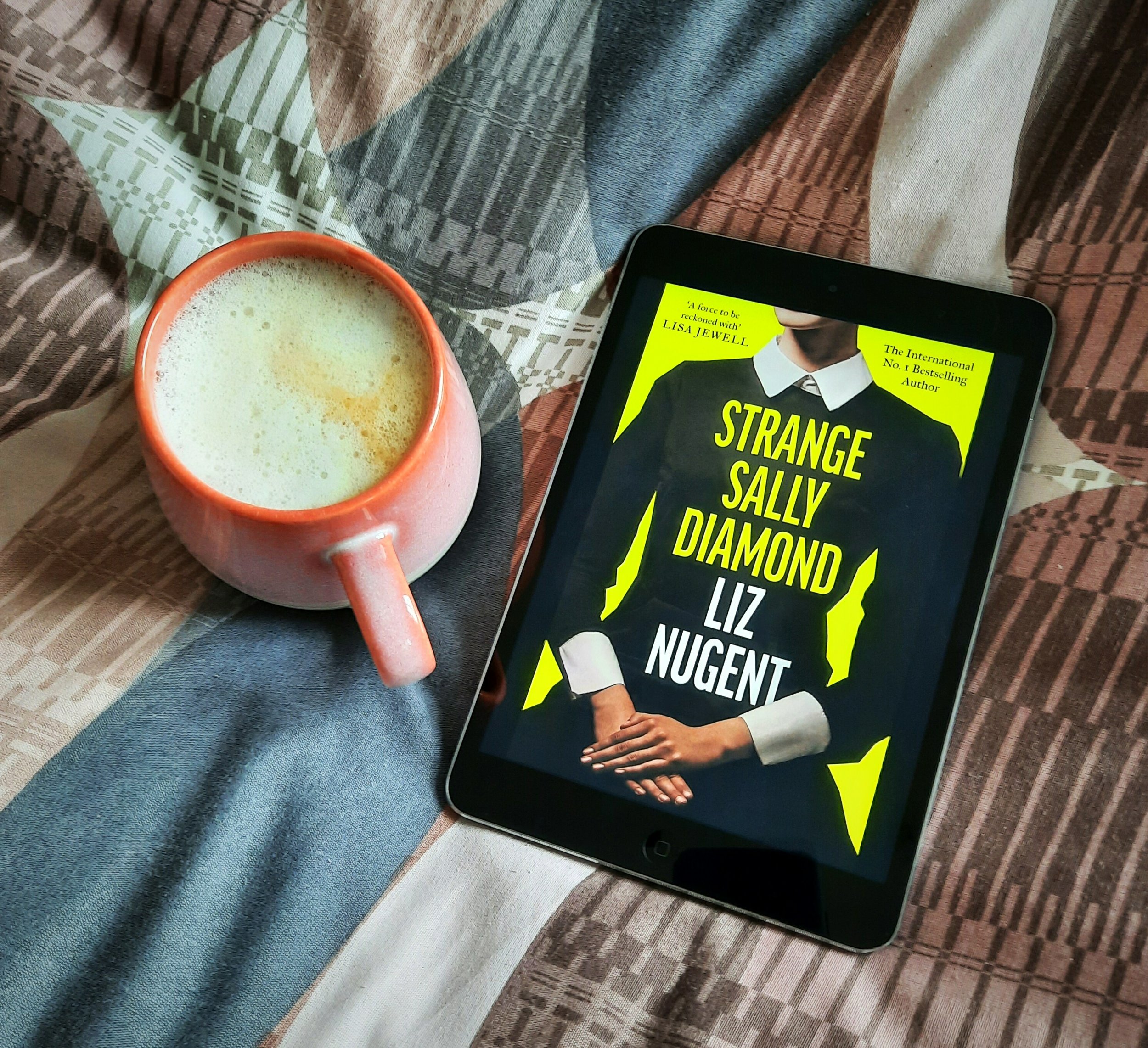Strange Sally Diamond by Liz Nugent. Advance Reader Copy (eARC) from the publisher via NetGalley included. No affiliate links were used. Read my full disclosure policy here.
‘Put me out with the bins,’ he said, regularly. ‘When I die, put me out with the bins. I’ll be dead, so I won’t know any different. You’ll be crying your eyes out,’ and he would laugh and I’d laugh too because we both knew that I wouldn’t be crying my eyes out. I never cry.
Sally Diamond does not understand why people are making a big deal out of her following her father’s instructions of putting him out with the bins when he died. Why would he say it if she wasn’t supposed to do it? From the blurb, we know that Sally’s actions lead to a police investigation and media coverage, leading to revelations that Sally was unprepared for.
As we’ve come to expect from Nugent, Strange Sally Diamond questions whether the horrible and disturbing things people do result from nature or nurture. These questions are never fully answered because there are no easy explanations for why people do ‘monstrous’ things. As I read, I kept thinking about Dr Gwen Adshead’s excellent non-fiction book The Devil You Know: Encounters in Forensic Psychiatry, co-written with Eileen Horne, which is a nuanced look at why people commit certain crimes.
I desperately wanted everything to turn out okay for Sally. This is Liz Nugent, so I wasn’t expecting everything to end wrapped in a pretty bow. The position Sally found herself in at the end felt realistic to me, given everything that happened.
Two aspects of the story kept pulling me out of the narrative. One is easier than the other to discuss without giving too much of the plot away. Sally’s asexuality is presented as being solely due to the trauma she has experienced. It is possible to be asexual and have experienced trauma, just as it is possible to be straight or bisexual and have experienced trauma. My issue is that Sally’s asexuality defaults to the asexuality = a trauma response trope that, while I do not think was Nugent’s intention, fails to see asexuality as a sexuality in its own right.
The other major stumbling block for me, and forgive me for being vague here, are the circumstances of how Sally ends up living where she does. More than once, I thought, ‘In 1980s Ireland, really?!’ I get that these events and the actions of people making that decision are supposed to be unprecedented and unorthodox, but I could not shake the shadow of Ireland’s long history of institutionalisation.
But it’s fiction; I can hear you saying! Just because it is set in Ireland doesn’t mean it completely matches our reality. I get that, and I accept that this reaction says more about me than Nugent’s storytelling abilities. But the present-day section mentions the pandemic, adding to my confusion and frustration. In my review of Cursed Bread by Sophie Mackintosh, I said that I didn’t know why the book affected me to the extent it did, allowing me to overlook things that ordinarily may give me pause. I equally do not understand why I got so hung up on this part of Strange Sally Diamond and couldn’t move past it.
While this isn’t my favourite of Nugent’s novels, Strange Sally Diamond is a compelling and intensely disturbing psychological thriller examing the lasting impact of trauma. I read it in a couple of sittings, so if you are looking for a page-turner, Strange Sally Diamond is worth picking up.
Strange Sally Diamond by Liz Nugent is published by Sandycove, an imprint of Penguin Random House. Strange Sally Diamond is available in hardback, trade paperback, ebook, and audiobook formats.
I don’t use affiliate links, but if you enjoy my book reviews you can show your support by buying me a coffee here.
